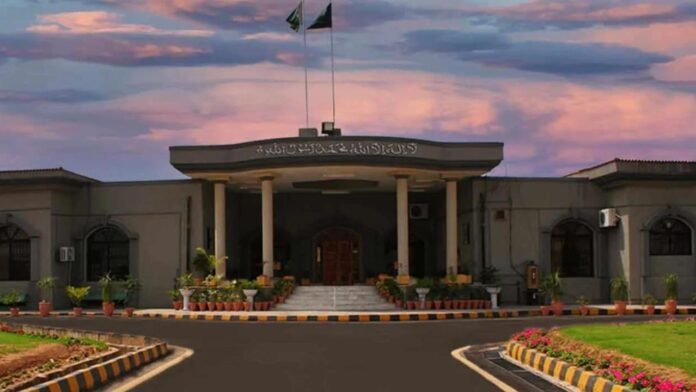The Islamabad High Court has mandated the live broadcast of all cases related to missing persons. Including the case of the disappeared poet Ahmed Farhad. Justice Mohsin Akhtar Kayani presided over a hearing concerning Farhad’s recovery. Attended by prominent figures such as Attorney General Mansoor Usman Awan, Inspector General of Islamabad Ali Nasir Rizvi, and advocate Imaan Mazari. Following the hearing, the court issued an eight-page written order in Urdu, instructing the live broadcast of all missing persons cases.
Court Summons and Reporting Instructions
The written order requires sector commanders of ISI, MI, and IB, along with the Minister of Law and the Secretaries of Defense and Interior, to appear in person on May 29. If authorities recover the abductee before the next hearing, they must submit a written report to the Registrar’s office. The Attorney General reported that they had not yet recovered the missing poet but mentioned ongoing efforts with intelligence agencies and requested more time.
Attorney General’s Guarantees and Police Efforts
The petitioner’s lawyer noted that the Attorney General had previously guaranteed Farhad’s recovery. Despite these assurances, state agencies have failed to recover him, heightening concerns for his safety. The decision cited police efforts, including geo-fencing, and expressed hope of locating the relevant individuals soon. The SSP Operations had yet to record the ISI Sector Commander’s statement, though his response was included through the Ministry of Defense. The investigation officer was instructed to record the statement under Section 161.
Accountability and Future Actions
The Attorney General clarified that ISI is accountable to the Prime Minister, while MI is linked to the Secretary of Defense and the Pakistan Armed Forces. The court emphasized the need for institutions to operate within constitutional limits and understand ISI’s procedures. The Secretary of Defense was summoned to provide a written explanation of ISI’s functions and methods.
Judicial Assistants and Public Interest
Journalist Hamid Mir informed the court about PEMRA’s notification on electronic media restrictions. The Attorney General stated that the court could allow reporting where appropriate. Given the public’s significant concern, the court permitted reporting. The court highlighted the broader issue of missing persons, calling for a permanent mechanism to address such cases and noting the insufficiency of the Missing Persons Commission. The attorney General and the petitioner’s lawyer were to nominate experts, with Hamid Mir and the Secretary of PFUJ appointed as judicial assistants.
Broader Implications and Institutional Accountability
The court stressed that the issue of missing persons goes beyond individual cases and requires systemic solutions. The IG of Islamabad was instructed to present a written report on all unidentified persons’ cases from the past year, including statements from investigators or victims’ families. The court questioned how the state could compensate the families of forcibly disappeared persons and address the negative perceptions associated with agencies like MI, ISI, and IB. The authorities appointed the Minister of Law and the Secretary of Law as judicial assistants to address these questions. The court adjourned the hearing until May 29.
Lahore High Court Chief Justice’s Address
Emphasis on Judicial Independence and Respect
Ending Strike Culture and Judicial Responsibilities in Lahore
The Chief Justice of the Lahore High Court, Malik Shehzad Ahmed, said that respect for the judiciary should be mutual. Speaking at a certificate distribution ceremony for judicial officers at the Punjab Judicial Academy on Saturday, he acknowledged its independence and commitment to law. He explained that it is not subordinate to any government or agency.
Ending Strike Culture and Judicial Responsibilities
Chief Justice Malik Shehzad Ahmed termed strikes as “the most dangerous weapon” against the judiciary, saying it was pleasing that no high court bar has called a strike so far.
He praised the efforts of Supreme Court judges headed by Chief Justice of Pakistan Qazi Faez Isa. Who continued hearing cases during days when calls for the strike were made.
Training and Expectations for New Judges
Today’s ceremony marked the completion of the pre-service training course for new judges in Punjab’s judiciary, including women judges. Chief Justice Malik Shehzad emphasized that administering justice is a divine attribute. Judges must be fearless, unselfish, courageous, and wise. He noted the shortage of judicial officers and the heavy workload in Punjab’s judiciary. Highlighting the need for modern technology and ADR systems to reduce pending cases. The Punjab Judicial Academy provides training aligned with contemporary requirements to expedite justice delivery. The Chief Justice expressed hope that the trained judges would apply their knowledge effectively in their professional lives.


